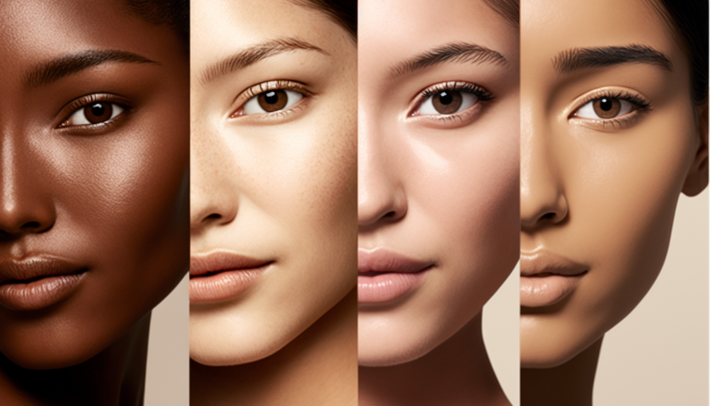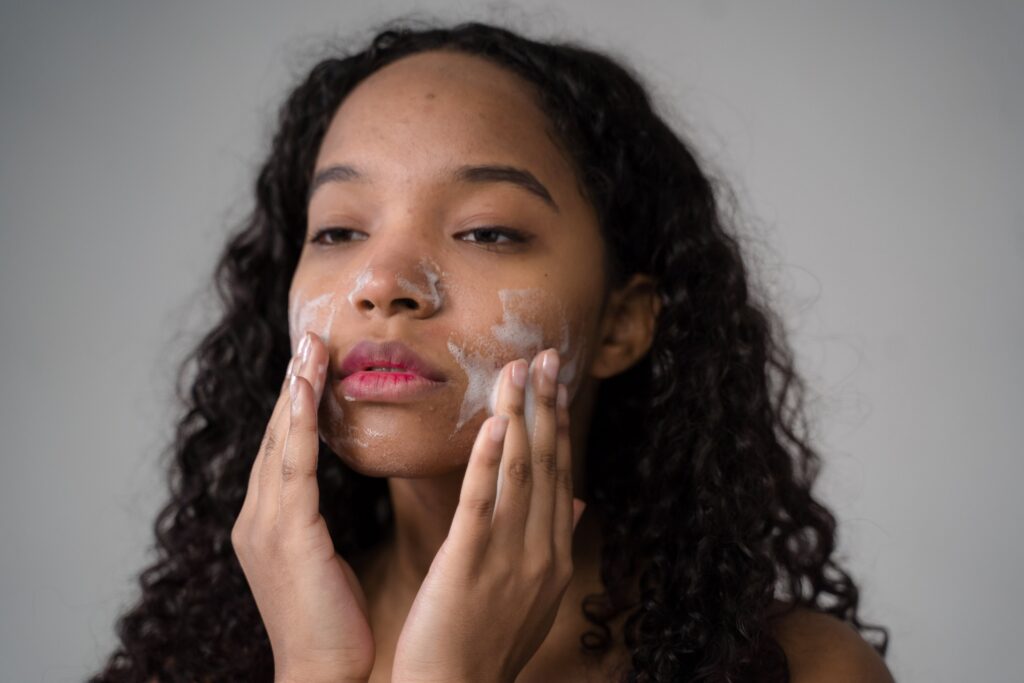Achieving clear and healthy skin is a goal for many people. However, it can be challenging to know where to start, especially when it comes to facial cleansing. Facial cleansing is a vital aspect of skincare and should be done regularly to maintain clear and healthy skin.
In this ultimate guide, we will explore the best practices for facial cleansing to help you achieve clearer skin.
Importance of Facial Cleansing for Clearer Skin
Facial cleansing is an essential step in any skincare routine, and it should not be overlooked. Cleansing helps to remove dirt, oil, makeup, and other impurities that accumulate on your skin throughout the day.
If these impurities are not removed, they can clog your pores, leading to breakouts and other skin problems.
Cleansing your face regularly can also help to improve skin texture, reduce the appearance of pores, and prevent premature aging.
Understanding the Different Skin Types

Before choosing a facial cleanser, it is essential to understand your skin type.
There are five different skin types: normal, dry, oily, combination, and sensitive. Each skin type requires a different type of facial cleanser to avoid aggravating any existing skin conditions.
Normal skin requires a gentle, pH-balanced cleanser, while dry skin requires a cleanser that hydrates and nourishes the skin.
Oily skin requires a cleanser that can remove excess oil without stripping the skin of its natural oils.
Combination skin requires a cleanser that can balance oil production and hydration, while sensitive skin requires a gentle, fragrance-free cleanser.
Choosing the Right Facial Cleanser
Once you have determined your skin type, it is time to choose the right facial cleanser. Look for a cleanser that is formulated for your skin type and contains ingredients that address any specific skin concerns you may have.
Some common ingredients to look for include salicylic acid, glycolic acid, benzoyl peroxide, and tea tree oil.
As you navigate the vast expanse of skincare products, choosing the right facial cleanser can be daunting.
We made a list of Top 10 Facial Cleansing Pads, that work best for all skin types and also have a reasonable price.
How to Wash Your Face Properly
Now that you have chosen the right facial cleanser, it is essential to know how to wash your face properly.
First, wet your face with lukewarm water. Then, apply a small amount of cleanser to your fingertips and massage it into your skin in a circular motion.
Be gentle and avoid scrubbing too hard, as this can irritate your skin. Rinse your face thoroughly with lukewarm water and pat it dry with a clean towel.
Importance of Double Cleansing
Double cleansing is a popular skincare technique that involves using two different cleansers to remove all traces of dirt, oil, and makeup from your skin.
The first cleanser is an oil-based cleanser that removes makeup and impurities, while the second cleanser is a water-based cleanser that removes any remaining dirt and oil. Double cleansing can help to ensure that your skin is thoroughly clean and prepped for the next steps in your skincare routine.
This technique is particularly beneficial for those who wear heavy makeup or live in areas with high levels of air pollution.
The Benefits of Exfoliating
Exfoliating is an essential step in any skincare routine as it helps to remove dead skin cells that accumulate on the skin’s surface.
This buildup can cause dullness, rough texture, and clogged pores, leading to breakouts and other skin problems.
Exfoliating also helps to improve skin texture and tone, making it appear brighter and smoother.
One of the must have items for exfoliating is an African Exfoliating Net, we wrote a blog post explaining what is it, how to use it and where to get it.
Incorporating Toner into Your Skincare Routine
After cleansing and exfoliating, it is essential to incorporate toner into your skincare routine.
Toner helps to balance your skin’s pH levels and remove any remaining traces of dirt or makeup.
It also helps to prepare your skin for the next steps in your skincare routine, such as serums and moisturizers.
The Role of Serum in Facial Cleansing
Serums are an essential part of any skincare routine, and they can help to address specific skin concerns, such as fine lines, dark spots, and uneven skin tone.
Serums are typically formulated with active ingredients that penetrate the skin deeper than other skincare products, making them more effective.
The Importance of Moisturizing
Moisturizing is an essential step in any skincare routine, as it helps to hydrate and nourish the skin, making it appear brighter and smoother.
It also helps to maintain the skin’s natural moisture barrier, preventing dehydration and other skin problems.
The Benefits of Facial Masks
Facial masks are an excellent way to treat specific skin concerns, such as acne, dryness, and aging. They come in different forms, such as clay masks, sheet masks, and overnight masks, and they work by delivering active ingredients directly to the skin.
Facial masks can help to improve skin texture and tone, reduce the appearance of pores, and leave the skin looking brighter and smoother.
The Significance of Sun Protection
Sun protection is an essential aspect of any skincare routine, as it helps to prevent sun damage, such as sunburn, premature aging, and skin cancer.
It is essential to use a broad-spectrum sunscreen with an SPF of at least 30 and to reapply it every two hours when exposed to the sun.
Tips for Maintaining Clear Skin
To maintain clear and healthy skin, it is essential to follow a consistent skincare routine and make healthy lifestyle choices.
Some tips for maintaining clear skin include staying hydrated, eating a balanced diet, getting enough sleep, managing stress levels, and avoiding smoking and excessive alcohol consumption.
Common Mistakes to Avoid When Cleansing Your Face
When cleansing your face, it is important to avoid some common mistakes, such as using hot water, using abrasive scrubs, over-exfoliating, and rubbing your face too hard.
These mistakes can irritate your skin, causing redness, dryness, and other skin problems.
Conclusion
Facial cleansing is an essential step in any skincare routine, and it should not be overlooked.
By understanding your skin type, choosing the right facial cleanser, and following the best practices for facial cleansing, you can achieve clearer and healthier skin.
Remember to follow a consistent skincare routine and make healthy lifestyle choices to maintain clear skin in the long run.
FAQs
1. How often should I wash my face?
It is generally recommended to wash your face twice a day – once in the morning and once at night. This helps to remove dirt, oil, and makeup that can accumulate on your skin throughout the day, as well as any sweat or bacteria that may have built up overnight.
However, the frequency of washing your face can also depend on your skin type and specific needs. For example, if you have oily skin, you may need to wash your face more frequently to help control excess oil production. On the other hand, if you have dry or sensitive skin, washing your face too often can strip your skin of natural oils and cause irritation.
2. Can I use the same cleanser for my body and face?
While it’s possible to use the same cleanser for both your body and face, it’s not always recommended.
The skin on your face is typically more delicate and sensitive than the skin on the rest of your body, so using a cleanser that’s too harsh or drying can cause irritation, dryness, or breakouts.
3. Can I skip toner in my skincare routine?
Yes, it is possible to skip toner in your skincare routine. While toners can be beneficial for some people, they are not always necessary for everyone.
Toner is typically used after cleansing to help remove any remaining dirt, oil, or makeup that may have been missed during cleansing. It can also help to balance the pH of your skin, hydrate, and prep your skin for other skincare products like serums and moisturizers.
However, if you have very sensitive or dry skin, toner may be too harsh or drying for you. In this case, it’s okay to skip toner and move on to the next step in your skincare routine.
4. Can I exfoliate every day?
No, it is not recommended to exfoliate your skin every day. Exfoliating too frequently can be damaging to your skin and lead to irritation, redness, and dryness.
The frequency of exfoliation can depend on your skin type and the type of exfoliant you are using.
For example, if you have oily or acne-prone skin, you may benefit from exfoliating once or twice a week to help keep pores clear. If you have dry or sensitive skin, you may only need to exfoliate once every two weeks or less.
5. Do I need to use sunscreen even on cloudy days?
Yes, it’s still important to use sunscreen even on cloudy days.
While it may not feel as sunny or hot, the sun’s harmful UV rays can still penetrate through clouds and cause damage to your skin.

